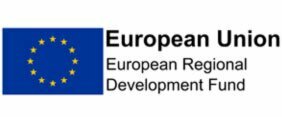Our CEO, Silviu Preoteasa worked for several years applying Big Data and traditional machine learning to predict where and when will users travel next. The conclusion he reached in 2016 was that available data on travel intent was insufficient to make predictions because a) only 50% of bookings are made online, b) travel patterns are highly dynamic and c) human behavior changes after each trip. While a) and b) could be hypothetically addressed by acquiring more data, c) proved a bigger challenge and he had to understand why.
Travel Broadens The Mind
Travelling and living abroad can affect the way we interact with people. by Dr Julia Zimmermann and Dr Franz Neyer found differences in the personality development of a large sample of German university students who had studied abroad for at least one semester when compared with a non-travelling group.
“ We argue that international mobility is a relevant life event for the personality development of young adults. ” — Dr Julia Zimmermann
Travel Serves Our Self-actualization

This implies that each trip defined as a function of n parameters ƒ(a1,a2,a3…an) is accompanied by a probability pƒ that a new feature (dimension) must be added to the dataset when predicting the next trip. Simply put, there is never enough data available to produce accurate lead-time and destination predictions using traditional machine learning. We need a new type of Data Science.

Introducing Travel Science
A sample including 30 million bookings made by 10 million people in 62,000 hotels over 4½ years was analysed using a 12-server cluster setup in Dublin (see photo).
Instead of deriving patterns from the input data itself, we used the discovery that all human behavioural data is guaranteed to contain within it a set of common “social behavioural laws” - mathematical relationships that emerge whenever a large enough number of people operate in the same space.
These laws govern the way various statistical properties of crowd behaviour evolve over time, regardless of the type of data, the demographics of the users who created it, or the data size. A well-known example is Pareto’s principle that states that,for many events, roughly 80% of the effects come from 20% of the causes. This is true for example in the case of frequent flyers and backpackers when applied to the travel sector. More work is currently under way to isolate more specific “invariants” that help us predict someone’s next trip such as the most likely day of the week to start a holiday, the top destinations or most likely hotels to book. After observing the 2nd or 3rd booking, Travel Science demonstrates an uncanny ability to predict where someone will travel to next, when are they most likely to go and how satisfied will they be with a destination or choice of hotel.
True Disruption In User And Inventory Acquisition
The above prediction model and the underlying data set were used to identify a subset of hotels (cca. 600 primarily in UK and Ireland) that have an unusual high ratio of guests that travel several times per year to a narrow choice of destinations. If these hotels could be persuaded to join a variant of Prisoner’s Dilemma game known as Public Goods and incentivized to refer their guests to our platform, we had the starting point of a powerful network effect towards onboarding more hotels and their guests organically .
A business model was refined over multiple iterations, together with the needed technology (an Angular widget that can provide OTA capability to any hotel website, powered by our API stack) and the onboarding process (confirmation emails and offline reception desk scripts). A feasibility study with several hotels is underway, and completing software development requires three new hires (identified) and 4-6mo to full launch. The network effect is modeled conservatively to take 5 years from launch to onboarding 180k hotels and cca. 32mn registered users, literally disintermediating Booking.com and Expedia and giving control over distribution back to hotels.





